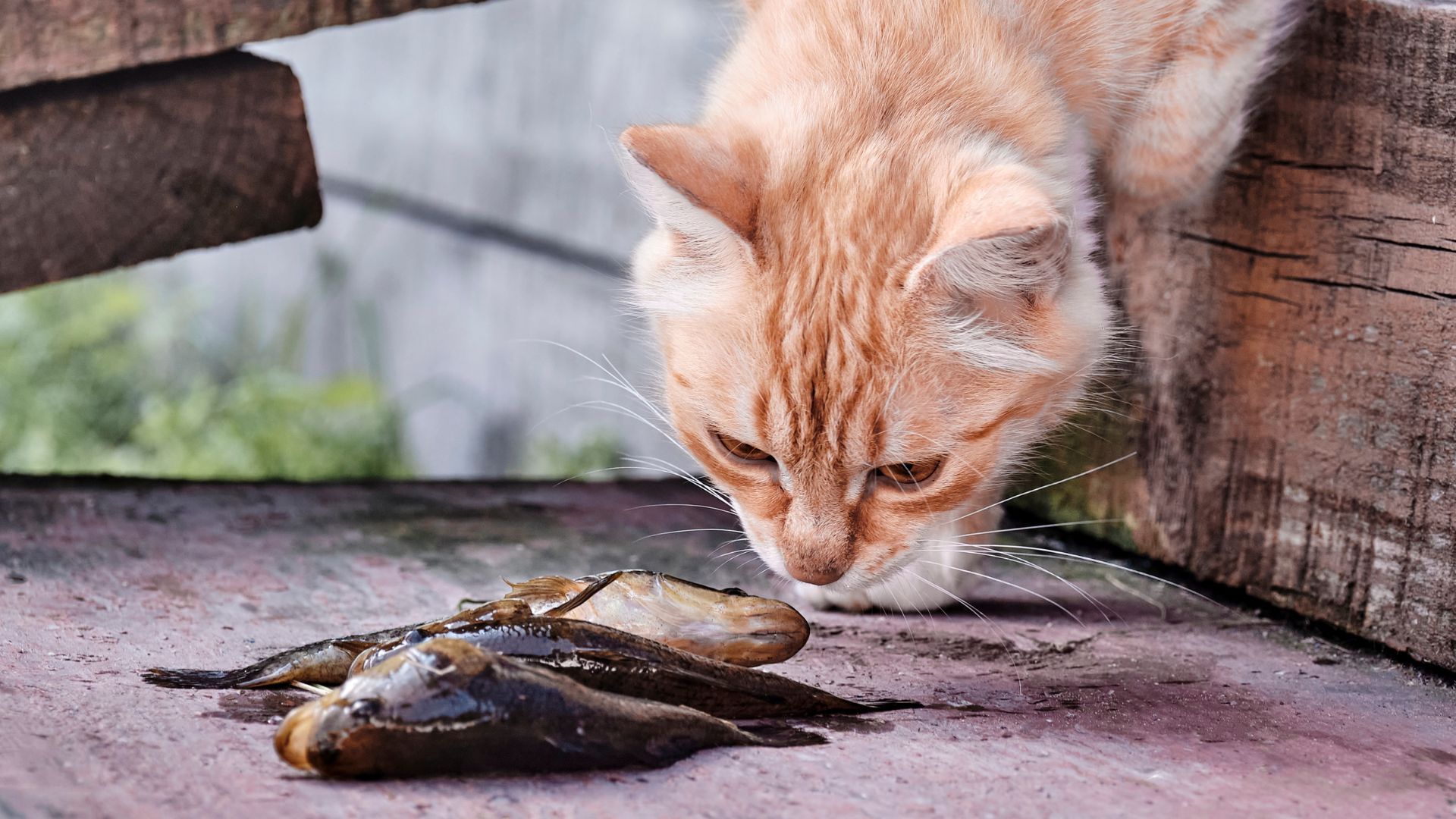Cats are naturally curious and often drawn to the enticing smells of human food. However, many foods that are perfectly safe for us can be harmful or even toxic to cats.
It’s important to be aware of these common food items and keep them out of your cat’s reach. Knowing the risks can help you protect your feline friend and ensure they stay healthy and safe.
1. Onions

Onions, whether raw, cooked, or powdered, are highly toxic to cats. They contain compounds that can damage a cat’s red blood cells, leading to anemia. Even small amounts can cause harm, so it’s crucial to keep onions and dishes containing them away from your cat.
Symptoms of onion toxicity include lethargy, weakness, and reduced appetite. If you suspect your cat has ingested onions, seek veterinary attention immediately.
Always check the ingredients of baby food and other products, as onions can be a hidden ingredient. Keep your kitchen and dining area onion-free to protect your feline friend.
2. Garlic

Garlic is another member of the allium family that’s toxic to cats. It is even more potent than onions and can cause severe damage to a cat’s red blood cells. Consumption of any amount can lead to symptoms such as vomiting, diarrhea, and abdominal discomfort.
Cats may also experience weakness and breathing difficulties. Immediate veterinary care is essential if garlic ingestion is suspected.
Avoid giving your cat any foods that contain garlic, including sauces and seasoned meats. By being vigilant, you can help ensure your cat remains healthy and safe from harmful foods.
3. Chocolate

Chocolate is a well-known toxin for cats, containing theobromine and caffeine, which are harmful to their system. Even small amounts can lead to serious health issues, including heart problems, muscle tremors, and seizures.
The darker the chocolate, the more dangerous it is for your cat.
Symptoms of chocolate poisoning include restlessness, rapid breathing, and increased heart rate. If you suspect your cat has ingested chocolate, contact your veterinarian immediately.
Keep all forms of chocolate, from bars to cocoa powder, securely stored and out of your cat’s reach to prevent accidental ingestion.
4. Grapes

While the exact toxin in grapes is unknown, they can cause acute kidney failure in cats. Even a small amount can be harmful, leading to symptoms such as vomiting, lethargy, and decreased appetite.
If your cat has ingested grapes, it is vital to seek veterinary care promptly to prevent severe complications. Cats are naturally curious, so it’s important to keep grapes and raisins out of reach and ensure they are not included in your cat’s diet.
Educate family members about the dangers of grapes to ensure your feline friend’s safety.
5. Raisins
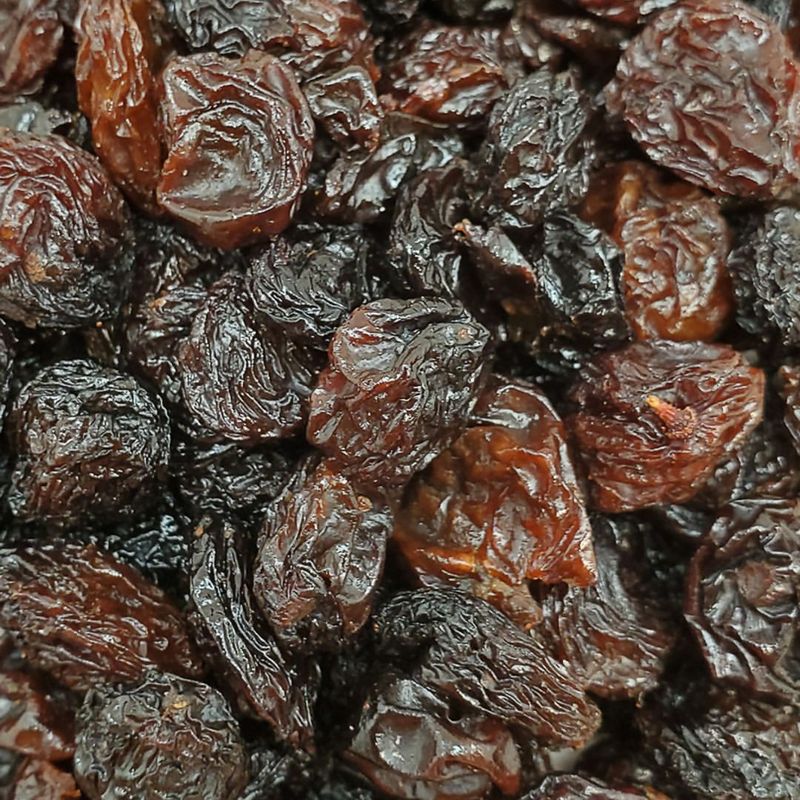
Raisins, like grapes, pose a serious risk to cats, potentially leading to kidney damage or failure. The exact cause of toxicity is not clear, but even small quantities can be harmful.
Early symptoms include vomiting and diarrhea, followed by signs of kidney failure such as increased urination and lethargy. Immediate veterinary intervention is crucial if your cat eats raisins.
Always check that foods, especially baked goods, do not contain raisins before sharing them with your pets. Keeping raisins out of your cat’s reach is essential to protecting their health.
6. Caffeine

Caffeine, found in coffee, tea, and energy drinks, is a stimulant that can be toxic to cats. Even small amounts can cause restlessness, rapid breathing, heart palpitations, and muscle tremors.
Severe cases of caffeine poisoning can result in seizures and collapse. It’s important to keep all caffeinated beverages and foods away from your cat.
Ensure that cups and containers are not left unattended where curious cats might investigate. If you suspect your cat has consumed caffeine, prompt veterinary treatment is necessary to prevent serious health complications.
7. Raw Eggs
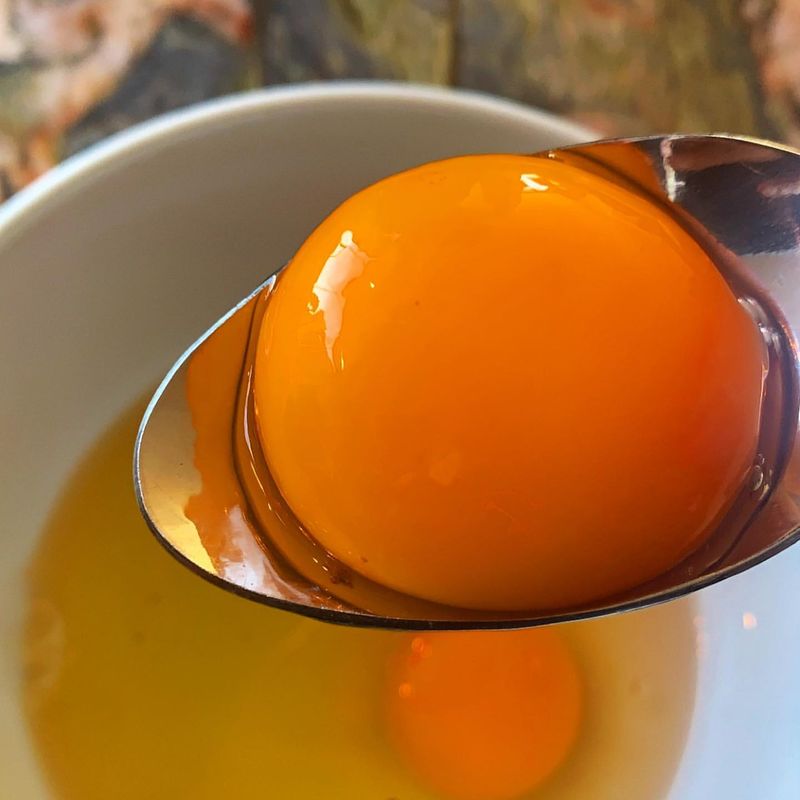
Raw eggs can pose two risks to cats: bacterial infection and a deficiency in biotin. Raw eggs may contain bacteria such as Salmonella, which can lead to food poisoning.
Additionally, raw egg whites contain avidin, an enzyme that can interfere with the absorption of biotin, leading to skin and coat problems. It’s best to avoid feeding raw eggs to cats altogether.
If you’re considering eggs as a treat, cooked eggs are a safer option. Always consult with your veterinarian before introducing new foods into your cat’s diet.
8. Raw Fish
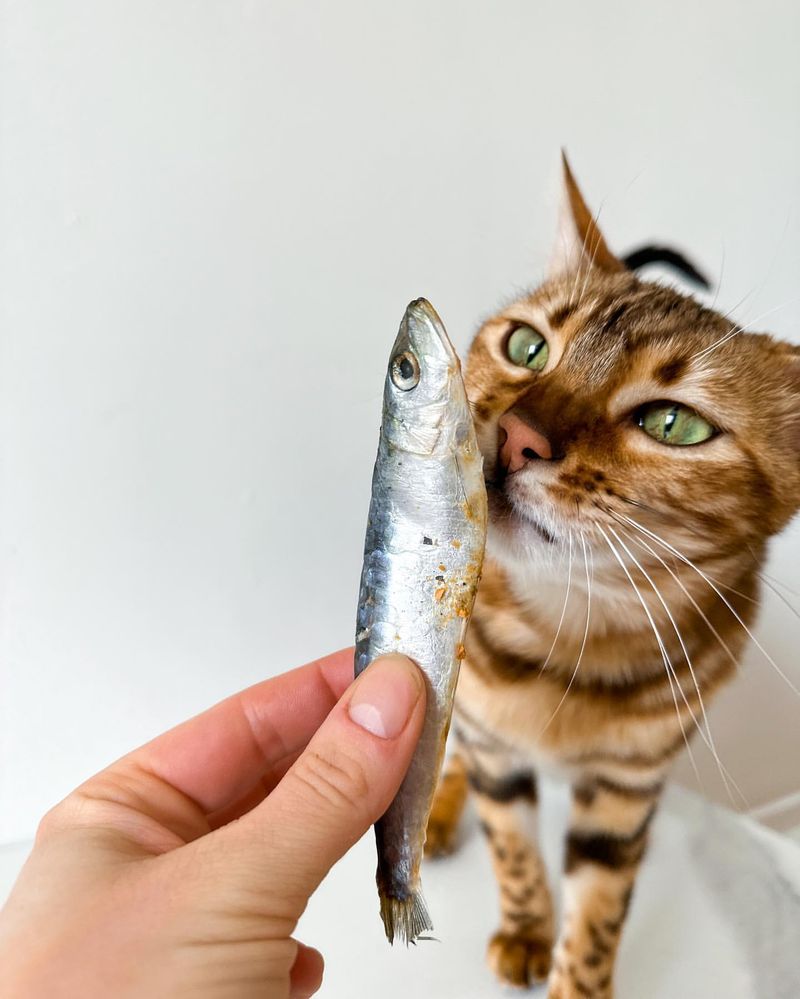
Feeding raw fish to cats can lead to a deficiency in thiamine, an essential B vitamin, as well as the risk of bacterial infections. Thiamine deficiency can cause neurological problems, including seizures and coma. Raw fish may also contain parasites and bacteria that can harm your cat’s health.
If you wish to include fish in your cat’s diet, ensure it is cooked and free from bones. Always consult your veterinarian for dietary recommendations tailored to your cat’s needs. Prevent access to raw fish to maintain your pet’s health and safety.
9. Dairy Products
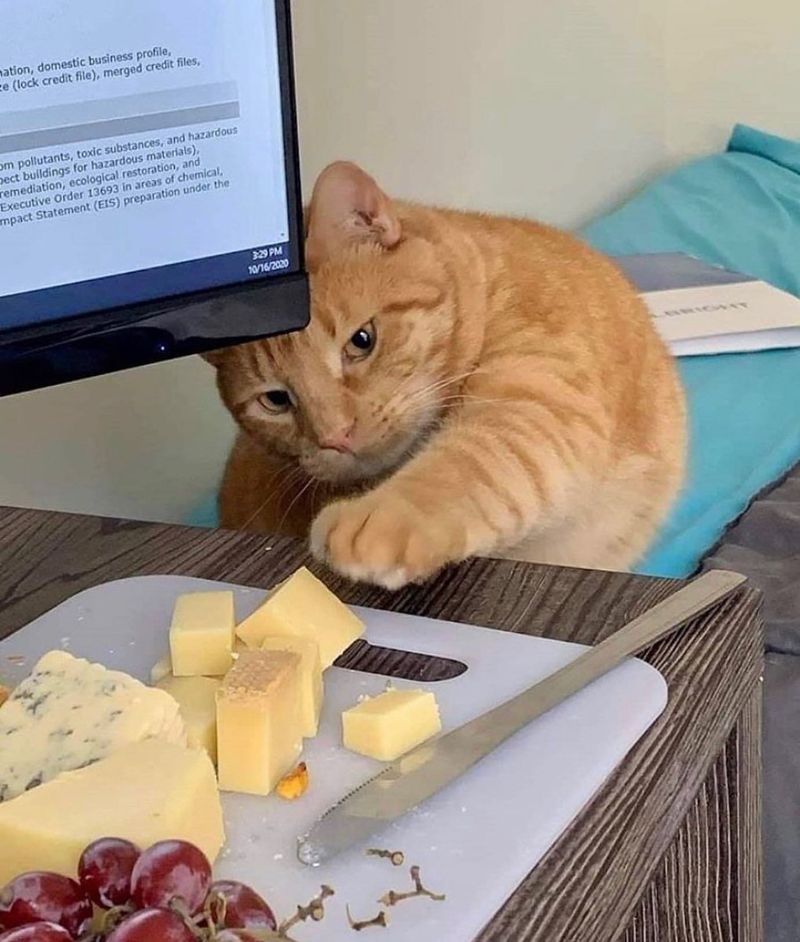
Despite the common image of cats enjoying milk, many cats are actually lactose intolerant. Dairy products can lead to digestive upset, causing symptoms like diarrhea and stomach pain. It’s important to recognize that cats do not need milk in their diet once they are weaned.
Instead, provide fresh water at all times. If you want to offer a milk-like treat, consider lactose-free cat milk products specifically designed for feline consumption.
Always monitor your cat’s reaction to new foods and consult with your vet if you’re unsure about their dietary needs.
10. Xylitol
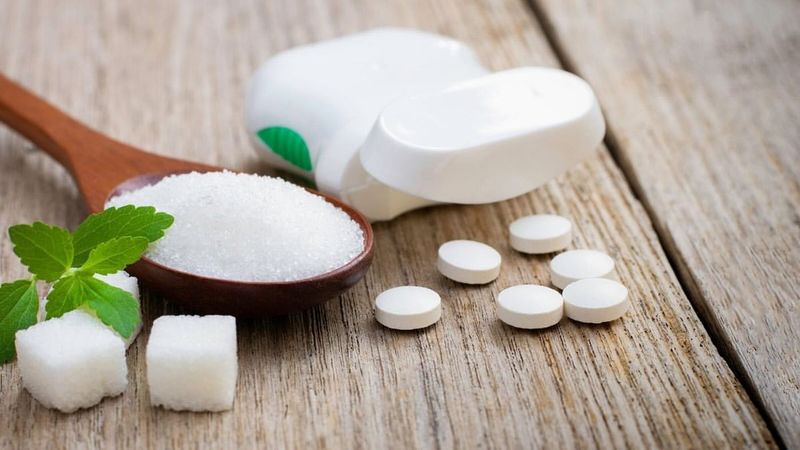
Xylitol is a sugar substitute found in many sugar-free products, including gum, candies, and baked items. While more harmful to dogs, it can also cause serious issues in cats, such as hypoglycemia, liver failure, and even death.
Symptoms of xylitol toxicity include vomiting, lethargy, and loss of coordination. Always check labels of products before offering them to your pets and avoid using xylitol-sweetened products in your home.
If you suspect your cat has ingested xylitol, seek emergency veterinary care immediately. Protect your cat by keeping harmful substances out of reach.
11. Fat Trimmings
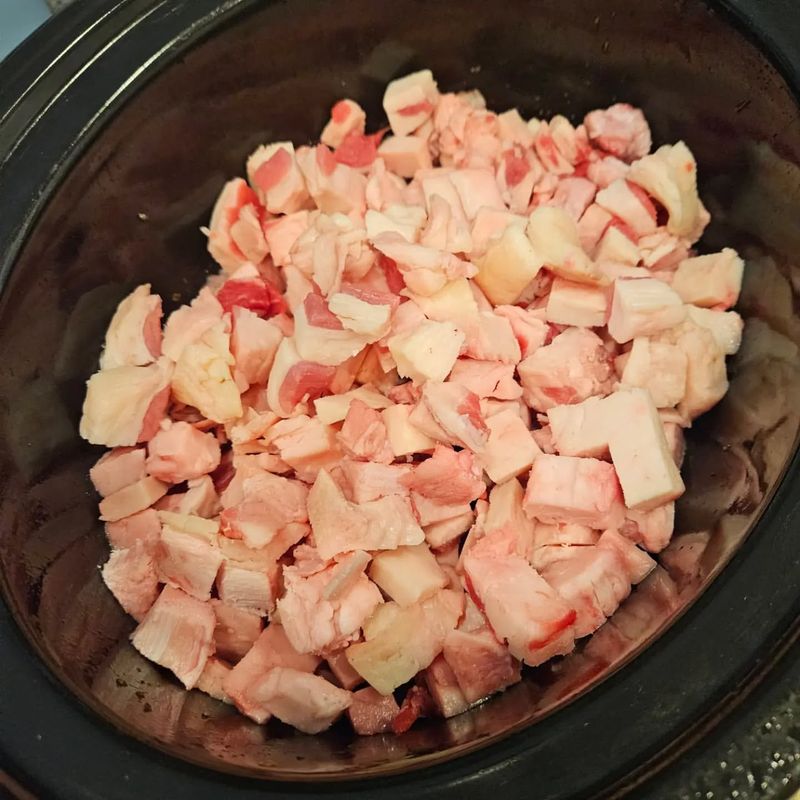
Feeding your cat fat trimmings from meat can lead to pancreatitis, an inflammation of the pancreas. High-fat foods can also contribute to obesity and other health issues in cats. It’s best to avoid giving your cat table scraps or fatty treats.
Instead, provide a balanced diet specifically formulated for feline nutritional needs. If you’re unsure about what foods are safe for your cat, consult with your veterinarian for guidance.
Keeping your cat on a healthy diet will support their overall well-being and longevity, avoiding complications related to fatty food consumption.
12. Bones

Bones, especially cooked ones, can be very dangerous for cats. They can splinter easily, leading to choking hazards or causing tears in the digestive tract.
Cats may also suffer from blockages if bones are ingested. Always ensure that bones are not accessible to your cat, especially during meal preparation or after dining.
If your cat enjoys chewing, opt for safe, vet-approved chew toys instead. It’s essential to prevent accidental ingestion of bones to avoid potential health risks. Consult your veterinarian if you’re considering adding bones to your cat’s diet.
13. Dog Food
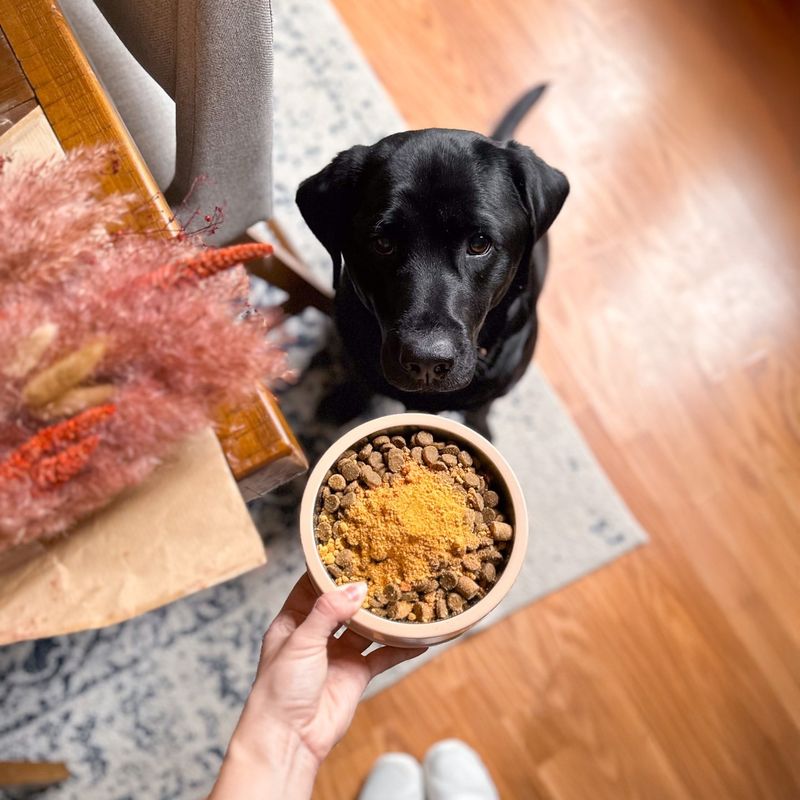
While not immediately toxic, dog food lacks the essential nutrients that cats require, such as taurine, vitamin A, and arachidonic acid. Feeding your cat dog food regularly can lead to nutritional deficiencies and health problems. Cats have specific dietary needs that are not met by dog food.
It’s crucial to feed your cat a balanced diet formulated for feline health. Consult your veterinarian for recommendations on high-quality cat food that meets your pet’s nutritional requirements. Keep dog food separate and ensure your cat has access only to foods intended for them.
14. Yeast Dough

Yeast dough can be hazardous to cats if ingested before it’s cooked. The dough can expand in a cat’s stomach, causing pain and potentially leading to gastric dilation.
Additionally, fermenting yeast produces alcohol, which is toxic to cats. Symptoms of yeast dough ingestion include bloating, vomiting, and discomfort. If you suspect your cat has eaten raw dough, contact your veterinarian immediately.
Keep dough out of your cat’s reach during baking activities. By ensuring your cat avoids yeast dough, you can prevent serious health issues and keep them safe.

